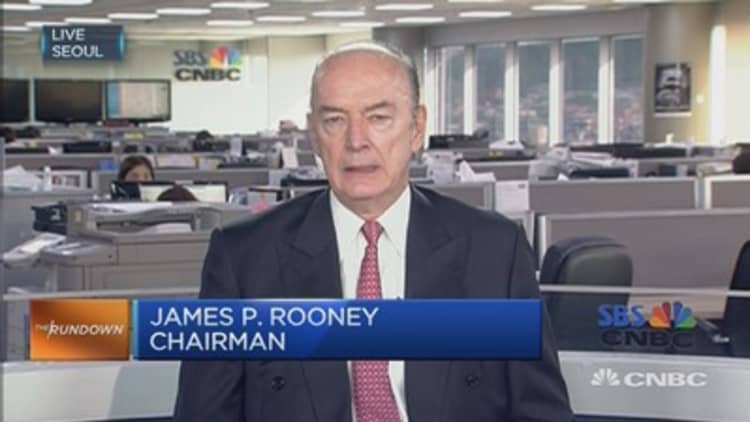Bad news has been a boon for Malaysia's rubber glove manufacturers, with the ringgit's drop and South Korea's MERS outbreak likely to provide a twin boost to profit.
Malaysia's rubber glove industry may sound like a minnow in the emerging market universe, but it can loom large in the global health-care market. It's the world's leading supplier of medical gloves, meeting more than 50 percent of global demand, according to the Malaysian Rubber Export Promotion Council.
"A firmer U.S. dollar remains a boon to the export-oriented glove manufacturing sector, since glove makers are expected to benefit from higher ringgit-denominated revenue given that the bulk of sales receipts are denominated in U.S. dollars," Lester Chin, an analyst at UOB KayHian, said in a note last week. "Furthermore, with most commodities traded in U.S. dollar, the stronger greenback could help prolong the current period of soft raw material costs."
He estimates that industry earnings rise around 3-5 percent for every 1 percent rise in the U.S. dollar against the ringgit.
Read More MERS: What you need to know
That could translate into a decent fillip: the ringgit has shed more than 3 percent of its value against the greenback so far in June, touching its lowest levels since early 2006; the currency was unpegged from the U.S. dollar in mid-2005.
Indeed, Chin noted that one glove maker, Hartalega, saw its average selling price for gloves fall 4.4 percent on-quarter in its fiscal fourth quarter, but that was still a 3 percent on-quarter improvement once it was translated into ringgit. Sector earnings overall rose 15 percent on-quarter in the first quarter, largely thanks to the decline in the ringgit, Chin said.
Demand for rubber gloves could be set for a spike soon, thanks to another bit of bad news: the spread of Middle East Respiratory Syndrome (MERS) in South Korea.
As of Wednesday, South Korea authorities reported a total of nine deaths and a total of 108 infections. Several countries in the region, including Malaysia and Hong Kong, have issued precautionary travel warnings in response to the outbreak.
"In the event that the outbreak worsens and spreads to countries with mature glove markets such as the U.S. and EU, it will likely be an unpleasant catalyst that will fuel demand for rubber gloves, which are a basic safety precaution," Walter Aw, an analyst at Affin Hwang, said in a note Monday. That would also likely allow glove makers to increase their selling prices as buyers become less price-sensitive, he noted.
A 5 percent increase in glove makers' capacity utilization would likely boost net profit by 5-14 percent, Aw estimated.
But he noted that Malaysia's four main sector players only export around 8 percent of their products within Asia, so an immediate surge of orders isn't likely unless MERS spreads.
To be sure, while Aw is Overweight on the sector's stocks on relatively inelastic demand for the product, UOB KayHian's Chin is keeping it at Market Weight.
Read More Are Asia's markets facing a 'hike hissy'?
"Positive sector catalysts have already been largely reflected in the valuations of glove companies," Chin said.
The shares have already had a bit of a pop. Top Glove is up nearly 6 percent so far this month, clocking up a 27 percent year-to-date gain. Kossan is up 8 percent so far this month, for a more than 51 percent year-to-date gain. Hartalega is up 7.3 percent so far in June, while Supermax has tacked on around 5 percent this month. That compares with the KLCI's around 1.5 percent fall so far this year.
While Chin has a Buy call on Top Glove on better valuations at 15 times 2016 earnings forecasts, he's rating Kossan at Hold and Hartalega at Sell as they're trading at 20 and 22 times earnings respectively.

Additionally, any rally driven by MERS fears could fade quickly, Tan Kee Hoong, an analyst at AllianceDBS, said in a note Tuesday, noting the virus isn't showing signs of sustained transmission within South Korea.
Tan also expects glove makers may need to start passing on some of the currency benefits to customers via lower U.S. dollar pricing as the market is competitive and industry production capacity is rising.
He's upgraded Top Glove to Buy on better profitability and capacity growth, but he's keeping the other three players at Hold.
—By CNBC.Com's Leslie Shaffer; Follow her on Twitter @LeslieShaffer1


